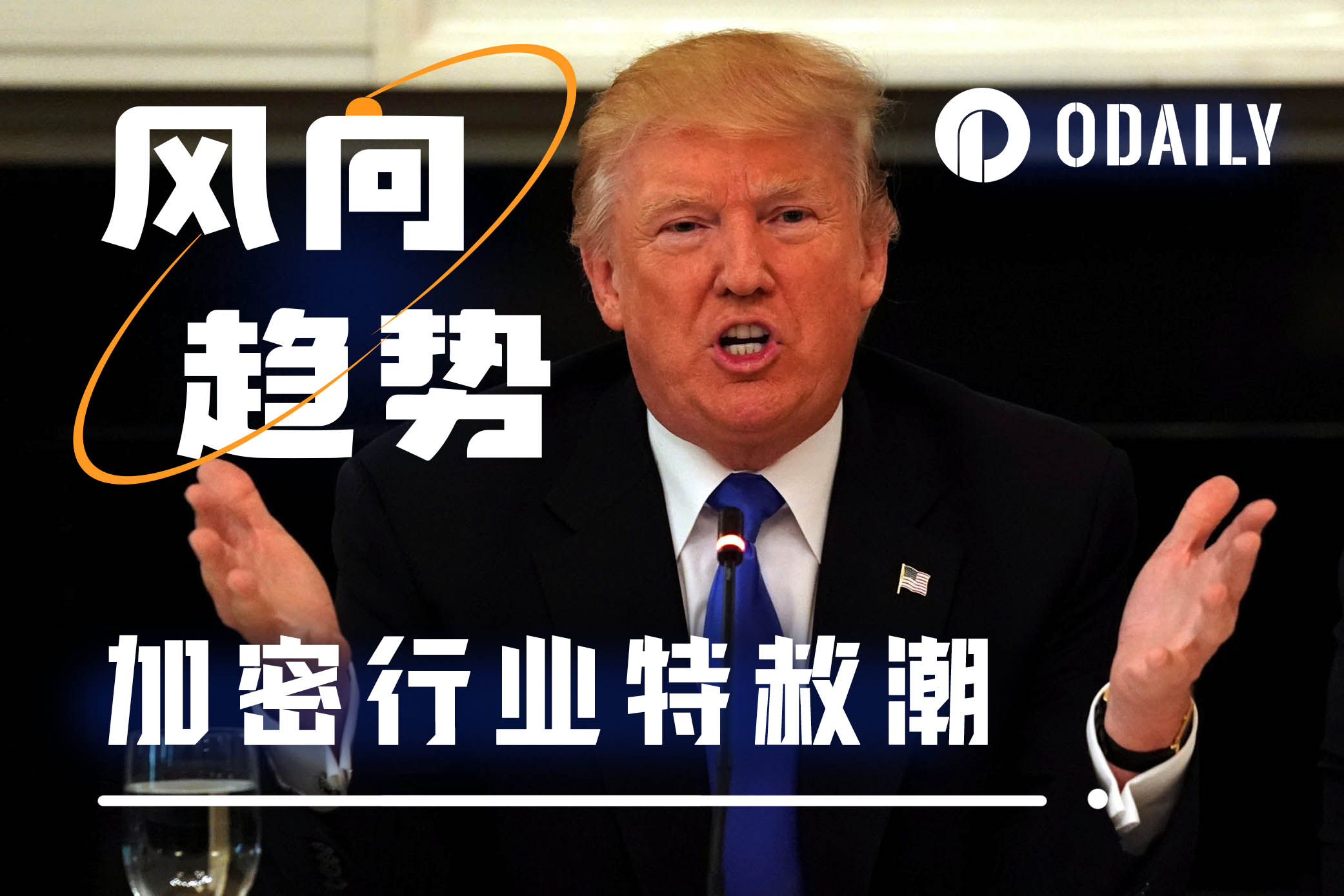Cryptocurrency giants line up to ask for amnesty, Trump becomes the "savior" of crypto
Original | Odaily Planet Daily ( @OdailyChina )
Author | Dingdang ( @XiaMiPP )

Binance founder CZ confirmed in a podcast on May 8 that his legal team had submitted an application for pardon to US President Trump on his behalf. This move has aroused widespread attention in the crypto industry to Trump's pardon policy.
Note: For the highlights of the podcast, please read "Exclusive Interview with CZ: I am lucky to be "forced to retire", but I will not return to Binance" compiled by Odaily Planet Daily.
With Trump's return to the White House in early 2025, he has signed pardons or commutations for more than 1,600 people, far exceeding the total number in his first term. There are also many cases of criminals in the crypto industry applying for pardons or being pardoned. Behind this is a chess game of political motives and emerging financial forces, reflecting the deep "alliance" between the crypto industry and Trump.
Crypto figures applying for amnesty
Changpeng Zhao (CZ): Founder of Binance Exchange
As the helmsman of Binance, the world's largest crypto exchange, CZ can be regarded as a "godfather" figure in the crypto industry. In November 2024, CZ was sentenced to four months in prison and a $50 million fine by the U.S. Department of Justice for violating the Bank Secrecy Act and failing to effectively implement anti-money laundering measures. Despite the lighter sentence, his career was severely hit. According to the U.S. Department of Justice, even if he is pardoned, his money laundering charges will not be eliminated, but he may be allowed to resume his management position at Binance.US.
Sam Bankman-Fried (SBF): Founder of FTX Exchange
FTX CEO Sam Bankman-Fried was once a shining star in the crypto industry, but was sentenced to 25 years in prison in 2024 and ordered to forfeit $11 billion in property due to the collapse of the platform in 2022 and billions of dollars in customer funds fraud.
In a March 2025 podcast, he claimed that his 25-year sentence was partly due to his growing relationship with the Republican Party before his arrest. In fact, SBF has donated more than $40 million to 196 members of Congress, including senior Republicans and Democrats, which is equivalent to one-third of the members receiving funds from him. He also criticized former SEC Chairman Gary Gensler and the way the crypto industry is regulated in the interview.
SBF’s parents — former Stanford Law School professors Barbara Fried and Joseph Bankman — are reportedly meeting with lawyers and others in Trump’s circle in an attempt to secure a presidential pardon for their son. SBF also recently posted on social media about the difficulties of layoffs, which was criticized by the crypto community as an attempt to curry favor with the Trump administration.
Roger Ver: Early Bitcoin Evangelist
Roger Ver, nicknamed "Bitcoin Jesus", is a veteran in the crypto industry. As early as 2011, he established his influence in the industry by promoting Bitcoin. However, in 2024, Ver was prosecuted by US authorities for suspected tax fraud and tax evasion and faced up to 7 years in prison.
Roger 's wealth mainly comes from early Bitcoin investment, but his long-term residence in Japan and his relinquishing of US citizenship have made his tax issues a focus of attention. It is reported that Roger has hired lawyers and lobbyists who are close to Trump to try to get out of legal trouble through amnesty.
Crypto-related figures who have been granted amnesty
Ross Ulbricht: Founder of Silk Road
Ross Ulbricht was sentenced in 2015 to two life sentences plus 40 years, effectively life in prison without the possibility of parole, for creating and running the darknet marketplace Silk Road, which operated from 2011 to 2013 and was primarily used to buy and sell drugs anonymously, and is widely considered to be the first real use case for Bitcoin.
On May 26, 2024, Trump promised at the Libertarian National Convention in Washington, D.C., that if he were re-elected as president, he would commute Ross Ulbricht's sentence on the first day. Trump said Ulbricht had served 11 years in prison and "we're going to get him home." On January 21, 2025, he fulfilled his promise, signed a pardon, and personally called his family.
Arthur Hayes: Founder of BitMEX Exchange
Arthur Hayes, the founder of BitMEX, promoted the popularity of derivatives trading in the crypto industry. However, in 2022, Hayes was sentenced to six months of home confinement and a $10 million fine for violating anti-money laundering regulations. Hayes' light sentence was related to his voluntary guilty plea and cooperation with the investigation, but his career was still severely damaged.
White House officials confirmed that Hayes was pardoned by Trump in early 2025. In addition, Trump also pardoned the other two co-founders of BitMEX, Samuel Reed and Benjamin Delo. This move is considered another example of Trump's "tolerant policy" towards the crypto industry. After the pardon, Hayes publicly stated that he would focus on crypto education and policy advocacy.
Trump’s Deep Alliance with the Crypto Industry
Trump's pardon of crypto industry figures is not a simple legal act, but a carefully laid out political chess game aimed at consolidating his political territory in the emerging financial sector. First, the crypto industry played an important role in the 2024 US election . Fairshake, a political action committee, raised more than $200 million to support pro-crypto candidates including Trump; Coinbase founder Brian Armstrong called for loose regulation through public speeches and policy lobbying to build momentum for Trump's crypto-friendly promises; venture capitalist Marc Andreessen donated $2.5 million to a super political action committee supporting Trump through his company Andreessen Horowitz (A16Z), actively promoting crypto-friendly policies. These resources provided a solid backing for Trump's victory and made his "return" to the crypto industry inevitable.
Secondly, pardoning iconic figures such as Ross Ulbricht precisely caters to the crypto community's decentralized philosophy and resistance to government regulation. Although Ulbricht's Silk Road involved illegal transactions, many people believe that it represents the spirit of decentralization and anti-authority. By releasing Ulbricht, Trump not only won the enthusiastic support of crypto fans, but also attracted voters who advocate freedom. This "testing the waters" approach successfully made Trump be seen as a "protector" of the crypto industry, further consolidating his political influence.



